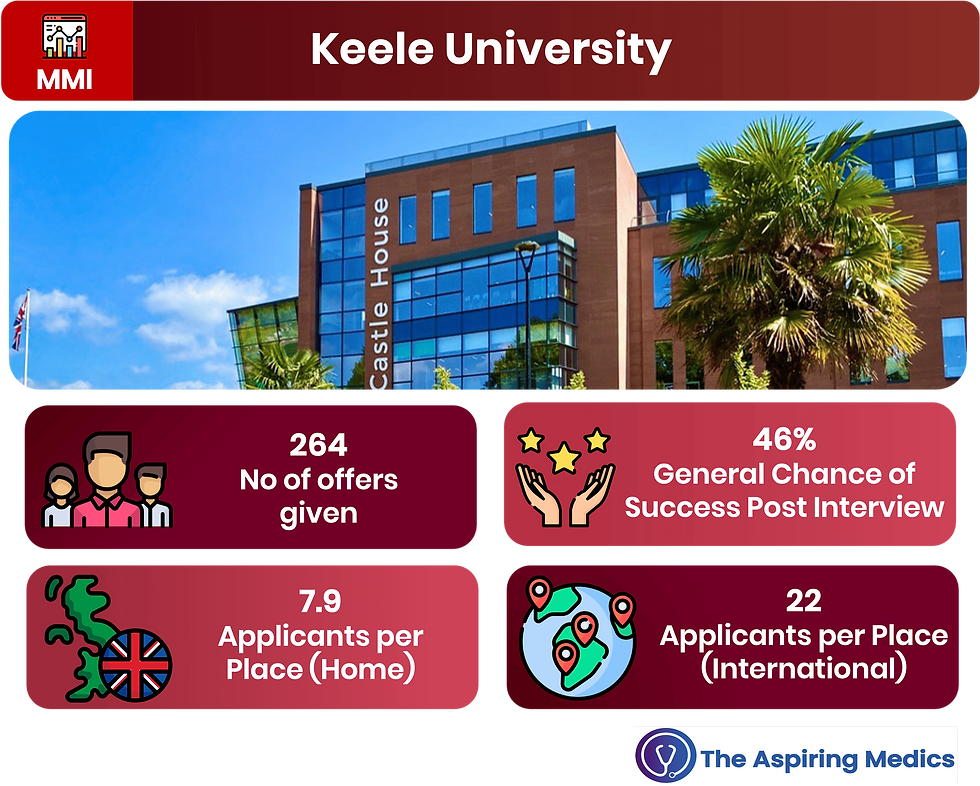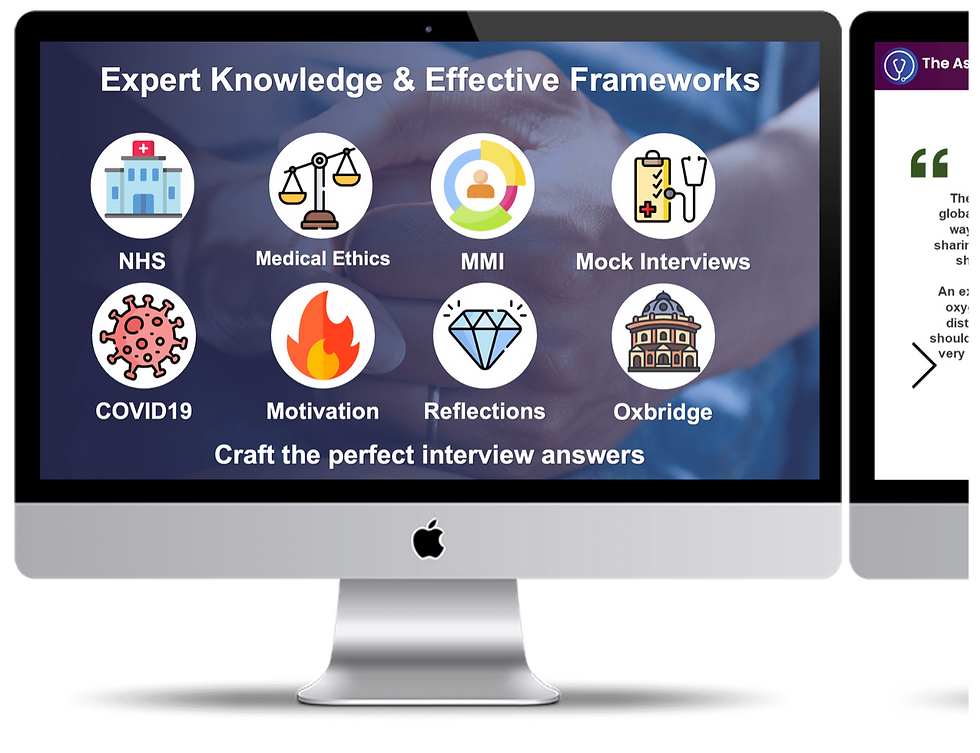Keele University Medicine Interview Questions (2025 Entry)
- The Aspiring Medics

- Jan 1, 2022
- 2 min read
Updated: Dec 4, 2024
About Keele Medical School (2025 Edition)

Keele University Medical School is a well rounded, forward-thinking and supportive school. It boasts a modern, spiral, highly-integrated medical curriculum. Keele is a tight-knit community that allows for extra support from staff and students. Keele provides early patient contact and provides practical ways to get a hands on experience. The staff and directors are very responsive to student feedback and are always there to offer support continuously without fail.


Check out our medicine interview course!


Stoke on Trent is a very small and quiet town. Keele has a huge campus with 600 acres of land and is beyond beautiful. Its placed in a lovely location being surrounded by Birmingham, Manchester, Liverpool and London (all being almost 45 mins away). Keele University is a very lively school and the medical course provides ways in order to maintain a work-life balance such as giving the afternoons off on Wednesday for involvements in societies. On campus, there are lots of sports and societies involved such as MedSoc, surgical society, anatomy society and many more. This provides ways to meet other students. Keele University is very self-sufficient with a grocery store on campus, a sports centre and a gym all on campus.

At Keele University, there are a ton of opportunities to meet new people and mingle with other courses. The University creates a welcoming environment where students share accommodation with other medical students in your year as well as other non-medical students. The school also provides events and workshops that involve all other healthcare courses allowing for the creation of a multidisciplinary team and providing a way to make friends from all over! There are also a ton of clubs available ranging from sporting, music, medical, cultural and drama societies. MedSoc society also plans a ton of events for medical students to mingle with other medics and meet other people in their cohort.

The Med Society has a huge reputation for putting on the best socials and creating amazing events for all of its medical students. Some of the events include the med ball, the end of year bar crawl as well as parties all throughout. The medical society is very active and is always there to get student feedback and suggestions for events. As there is about 200 students per year, the med school has a friendly, tight-knit community atmosphere which makes Keele very unique.
Click on the icons below to learn more about Interviews!

















